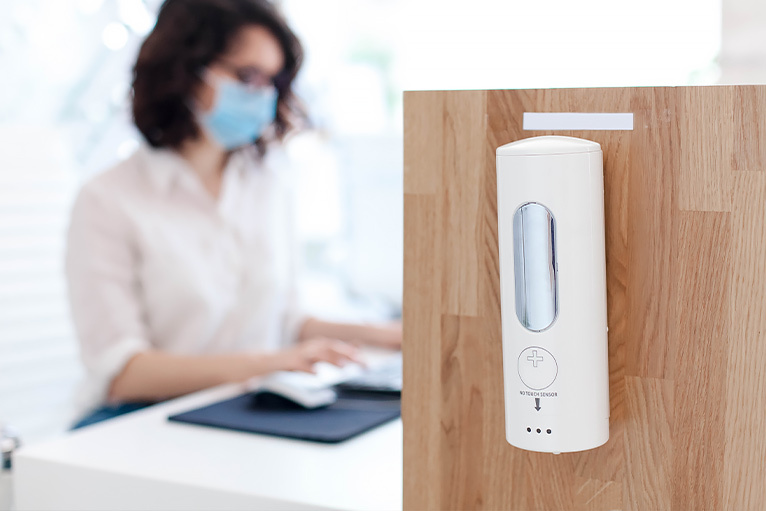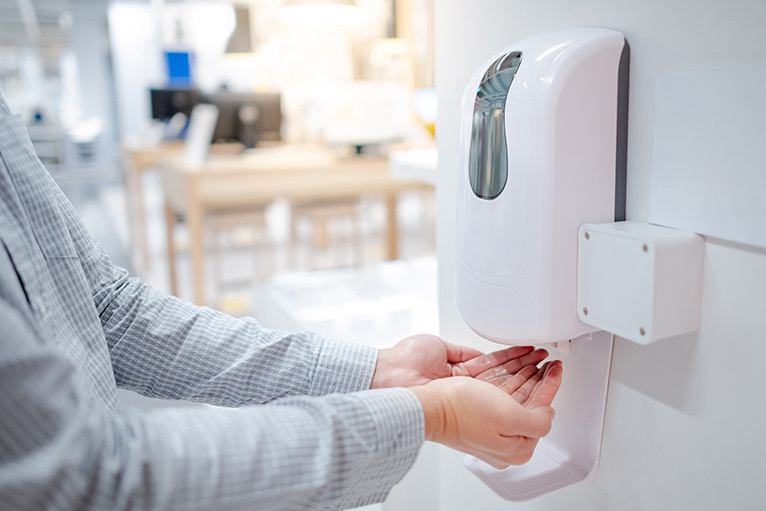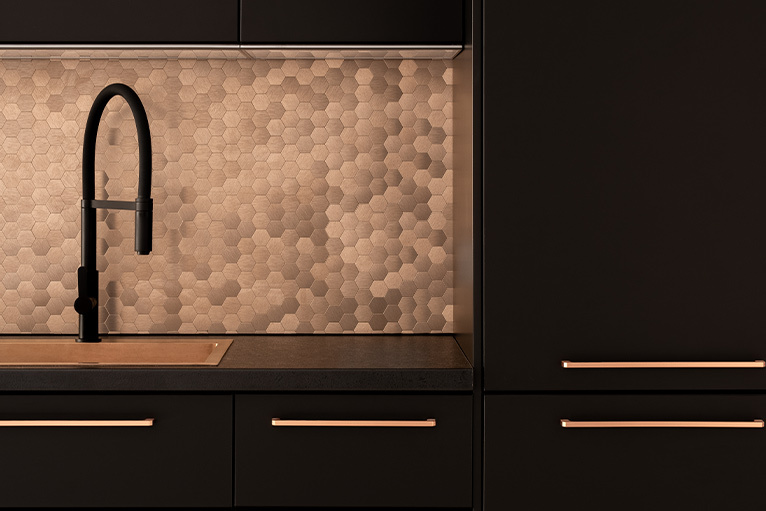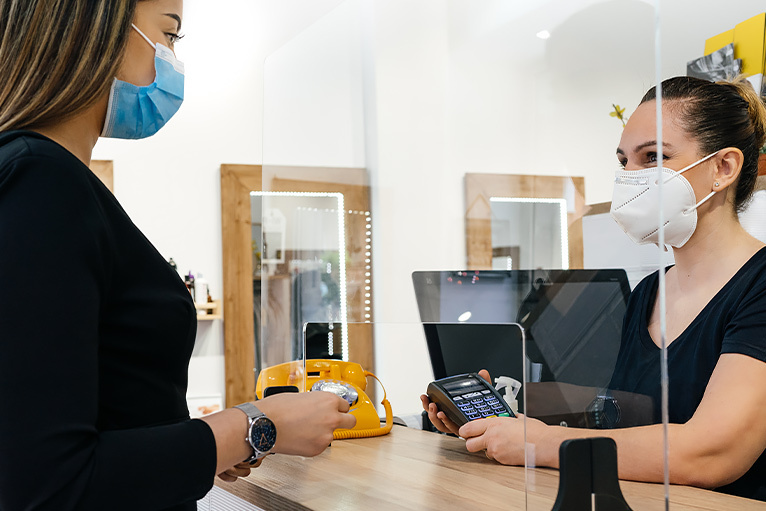
Whilst many of your employees may be working from home for most the week, there are the occasional days that they may need to go into the office. Whether it’s because they don’t have an effective workspace at home, or because they need to use specialist equipment at work, here are five features to consider implementing into your workplace to help keep them safe from coronavirus.
1. Install touch-free hand sanitiser

Keys, phone, hand sanitiser… Hand sanitiser gel is now a must-have item if you’re leaving the house. It’s a good idea to provide hand sanitiser for your staff to use as soon as they come into the workplace, especially if they’ve used public transport.
Motion-activated dispensers are a popular option in offices around the UK. Not only do they eliminate a common contact point for germs, but their modern look attracts attention, increasing the likelihood of people using it. They deliver the right amount of sanitiser to reduce waste as well, plus they’re easy for a handyman to install.
2. Use copper in high-touch areas

Recent research by the University of Southampton has found that a copper alloy can kill COVID-19 in less than 10 minutes, thanks to its antimicrobial properties. Swap out your existing kitchen door and drawer handles for copper ones, as well as your worktops. It’s easier to clean and harder for bacteria to stick to.
Copper also makes your kitchen look super stylish – so take this opportunity to get on the trend of using metallics in your office kitchen.
A handyman can install copper handles on doors and drawers, whilst a kitchen specialist can fix new copper worktops in place.
3. Upgrade your air conditioning

Good ventilation can reduce the risk of spreading coronavirus, according to HSE. This is because COVID-19 spreads via droplets. So, you should get into a daily pattern of opening windows and turning on your air conditioning to introduce fresh air into your workplace.
It’s important to make sure that your air conditioning system uses a fresh supply of air or mixes extracted air with fresh air, to reduce the risk of coronavirus transmission. You also have the option of installing an air conditioning system that uses UV light in coils at its centre, or in the ducting, to kill pathogens.
To check if your current system is effective and for advice on whether you should update it, speak to a local air conditioning specialist.
4. Put plastic partitions and plant screens in place

By putting a physical barrier in place between customer-facing staff (such as receptionists) and visitors, you can greatly reduce the risk of coughs and sneezes from reaching your employees. Transparent plastic partitions are easy to clean and allow staff to maintain eye contact, which is essential for good customer service!
When it comes to maintaining social distancing between office workers at their desks, plastic partitions may create an unwelcoming and isolating environment for them. Use rows of plants to separate people where needed instead, to help them maintain social distancing. Plant screening will improve your office’s air quality too.
From ceiling mounted screens to free standing ones, a handyman can install the best option for your workplace.
5. Sanitise your workspace regularly

It’s essential that you get your workplace cleaned regularly. A vetted cleaner will get rid of dust and dirt – and most importantly, they’ll disinfect your space to prevent the spread of COVID-19.
If any of your employees show signs of coronavirus, you need to take action to protect the rest of your staff with a deep clean. A cleaner will wear the right PPE (personal protective equipment) to keep themselves safe whilst completing the job.
Find out how often you need to get your office cleaned in our deep cleaning for your office advice.
Note: The government has confirmed that there is no limit to the group size when you are meeting or gathering for work. But, workplaces should be set up to meet the COVID-secure guidelines – follow the government’s guidance on how to return to work safely.
Note: Countries may approach the different phases of lockdown differently. This guidance is in line with the UK government‘s advice and is being followed in England. See the specific government websites for any differences.



